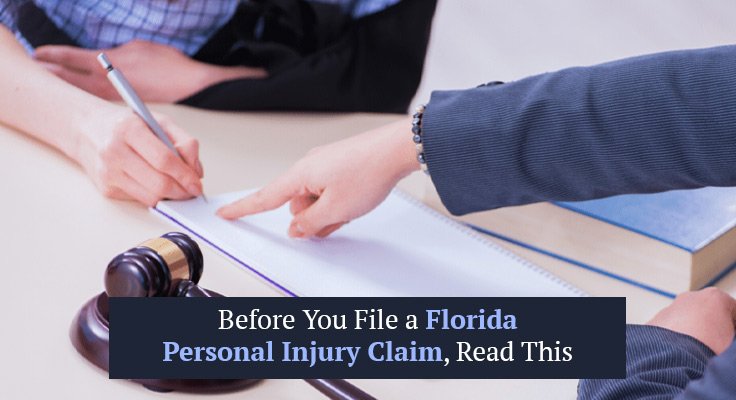An injury rarely announces itself. Most people never see it coming. It can happen while walking into a store, merging onto the freeway, or even during a routine medical visit. And while the injury is personal, the question that follows is painfully practical: Who is going to cover this?
If someone else’s mistake led to your pain, the law might give you options, but those options are filled with rules, traps, and confusing steps. In this article, we’re going to break it all down so you can understand what to expect and what to do if you’re thinking about filing a personal injury claim in Florida.
Is Your Situation a Personal Injury Case Under Florida Law?
“The law gives us a framework to follow, but every case is different,” says Personal injury attorney Clifford Wells of Herman and Wells. “We have to look closely at the facts to know whether the legal elements are actually there.”
From the outside, personal injury cases seem as varied as the people who bring them. But underneath the emotion and pain is a legal checklist that Florida courts use to decide if a case has grounds to stand on. Most of the time, it’s about negligence, where someone who should have been careful wasn’t. For your case to move forward, it typically has to meet these requirements:
- Duty of care: The person or entity had a legal obligation to act with reasonable care
- Breach of duty: That obligation was ignored or violated
- Causation: There is a direct link between their actions and your injury
- Harm: You experienced real losses, like medical bills, lost wages, or long-term pain
This framework does not change, but the way it is applied absolutely does..
Car Accidents
Florida is a no-fault state, but that doesn’t mean fault is disregarded. After a crash, your own insurance, not the other driver’s, pays first through a coverage called Personal Injury Protection (PIP). In most cases, it covers 80 percent of medical expenses and 60 percent of lost income, but only up to a specific limit.
But here’s the catch: if you want to recover more than that, like compensation for pain and suffering, you’ll need to prove your injuries are severe enough to meet Florida’s legal threshold. That’s not easy, and most people need a lawyer’s help to do it. Also, don’t wait. As of 2023, you only have two years from the date of the accident to file a lawsuit, and if you don’t get medical care within 14 days, you might not get any PIP benefits at all.
Medical Malpractice
If you were hurt because a doctor, nurse, or other medical provider did not act the way a reasonably careful provider should have, you might have a valid medical malpractice claim. But before you can even sue, you have to send a formal Notice of Intent to the provider or their insurer, explaining what happened, what the injury was, and the legal basis for your claim.
That notice must be sent at least 90 days before filing the lawsuit. Timing is critical here. You only have two years from the time you knew, or should have known, that malpractice may have occurred. And even that has a hard limit: no matter what, the case must be filed within four years of the incident, unless the provider actively hid what they did, in which case the window may stretch to seven years.
Dog Bites
In Florida, dog owners are absolutely accountable if their dog bites someone, even if it is the first time. You do not need to prove negligence. But that doesn’t mean every bite leads to a full payout.
If the bite happened in a public place, the owner is fully responsible. If it happened on their property, they might use the “Bad Dog” sign defense, which only works if the sign was clearly posted, the victim was over six years old, and had no legal right to be there. If the victim was invited or too young to be blamed, the defense falls apart. Owners can also argue that the bite was provoked, which might reduce what they owe.
Workplace Accidents
In Florida, being injured on the job almost invariably triggers workers’ compensation.. That’s the deal: you give up the right to sue, and in return, you get medical care, wage support, and possibly help switching careers if your injury changes your abilities.
You are locked into the system unless your employer did something intentional, a third party caused the injury, or the equipment you were using turned out to be dangerously flawed. If any of those things ring true, your options might open back up.
When Is a Personal Injury Lawyer Necessary?
Some personal injury claims are simple enough to handle without hiring an attorney. When injuries are minor, the facts are clear, and cooperation is on the table, handling things on your own may be possible. But life rarely sticks to a checklist.
Maybe your pain gets worse with time. Maybe the other side changes their story. Or maybe the rules you thought were straightforward turn out to be a maze of legal requirements you did not see coming. Most people are safer getting a lawyer involved early, especially one who focuses on your type of case.
Ask around, check the Florida Bar, or search trusted sites like Justia. But don’t wait too long.
Also Read: How to Establish Liability and Prove Fault In Personal Injury Claims





















